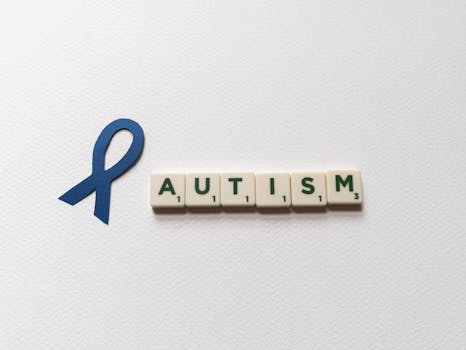
Rewiring Your Brain: Unlock Your Potential with Cognitive Behavioral Therapy (CBT)
Cognitive Behavioral Therapy (CBT) is a powerful and widely-researched form of psychotherapy that's transforming lives. It's not about simply talking through problems; it's about actively identifying and changing negative thought patterns and behaviors that contribute to emotional distress. This practical, goal-oriented approach equips individuals with the tools to manage a wide range of mental health challenges, from anxiety and depression to obsessive-compulsive disorder (OCD) and post-traumatic stress disorder (PTSD).
Understanding the Core Principles of CBT:
CBT rests on the foundational belief that our thoughts, feelings, and behaviors are interconnected. Negative or unhelpful thoughts can fuel negative emotions, leading to maladaptive behaviors. For example, someone with social anxiety might think, "Everyone is judging me," leading to feelings of intense fear and avoidance of social situations. CBT aims to break this cycle by helping individuals:
- Identify negative automatic thoughts (NATs): These are the quick, often unconscious thoughts that pop into our heads in response to situations. CBT helps individuals recognize these thoughts and examine their validity.
- Challenge negative thought patterns: Through cognitive restructuring, individuals learn to question the accuracy and helpfulness of their NATs. Are these thoughts based on facts or assumptions? Are there alternative, more balanced ways to interpret the situation?
- Develop coping mechanisms: CBT equips individuals with practical strategies to manage difficult emotions and situations. This might involve relaxation techniques, problem-solving skills, or exposure therapy (gradually confronting feared situations).
- Behavioral activation: This crucial element of CBT focuses on increasing engagement in activities that bring pleasure or a sense of accomplishment. This helps to combat the withdrawal and inactivity often associated with depression and anxiety.
- Anxiety Disorders: Generalized anxiety disorder (GAD), panic disorder, social anxiety disorder (SAD), phobias, and post-traumatic stress disorder (PTSD) all respond well to CBT. Techniques like exposure therapy are particularly effective in addressing anxiety-provoking situations.
- Mood Disorders: CBT is a first-line treatment for depression, helping individuals identify and challenge negative thought patterns that contribute to low mood and lack of motivation. It can also be helpful in managing bipolar disorder, assisting in mood stabilization strategies.
- Obsessive-Compulsive Disorder (OCD): CBT, specifically Exposure and Response Prevention (ERP), is a highly effective treatment for OCD. ERP involves gradually exposing individuals to their obsessions while resisting the urge to engage in compulsive behaviors.
- Eating Disorders: CBT plays a significant role in the treatment of anorexia nervosa, bulimia nervosa, and binge eating disorder. It helps address distorted body image, unhealthy eating habits, and underlying emotional issues.
- Trauma and PTSD: CBT, particularly Trauma-Focused CBT (TF-CBT), can help individuals process traumatic experiences and develop coping strategies to manage symptoms like flashbacks, nightmares, and avoidance.
- Substance Abuse: CBT can be used to help individuals identify and change the thoughts and behaviors that contribute to substance abuse, promoting relapse prevention.
- Sleep Disorders: CBT for insomnia (CBT-I) focuses on identifying and modifying unhelpful sleep habits and beliefs, promoting better sleep hygiene.
- Empowerment: CBT is an active and collaborative approach, empowering individuals to take control of their mental health. It’s not about passively receiving treatment; it's about learning valuable skills for long-term well-being.
- Skill Development: The skills learned in CBT, such as cognitive restructuring and coping mechanisms, are transferable to many areas of life, enhancing overall resilience and emotional regulation.
- Relatively Short-Term: Compared to some other therapies, CBT is often a relatively short-term treatment, although the duration varies depending on the individual and their specific needs.
- Evidence-Based: CBT's effectiveness is supported by extensive research, providing a strong foundation for its widespread use.
What Conditions Can CBT Treat?
CBT's versatility makes it an effective treatment for a broad spectrum of mental health conditions, including:
The Benefits of CBT:
Beyond its effectiveness in treating various mental health conditions, CBT offers numerous benefits:
Finding a CBT Therapist:
If you're considering CBT, it's crucial to find a qualified and experienced therapist. Look for therapists who are licensed and specialize in CBT. Many therapists offer online therapy sessions, providing flexibility and accessibility. Your primary care physician or a mental health professional can provide referrals.
Conclusion:
Cognitive Behavioral Therapy is a powerful tool for improving mental well-being. Its focus on identifying and changing negative thought patterns and behaviors provides a practical and effective pathway towards lasting change. By equipping individuals with valuable coping skills and strategies, CBT empowers them to navigate life's challenges with greater resilience and emotional intelligence. If you're struggling with a mental health condition, don't hesitate to explore the potential benefits of CBT. It could be the key to unlocking your potential and living a more fulfilling life. Remember to consult with a healthcare professional for diagnosis and treatment recommendations.

